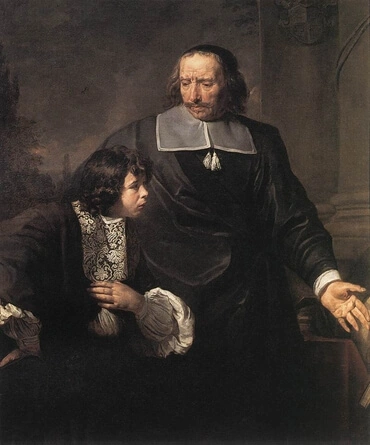1
大衛年間有饑荒,一連三年,大衛就求問耶和華。耶和華說:這饑荒是因掃羅和他流人血之家殺死基遍人。
2
原來這基遍人不是以色列人,乃是亞摩利人中所剩的;以色列人曾向他們起誓,不殺滅他們,掃羅卻為以色列人和猶大人發熱心,想要殺滅他們。大衛王召了他們來,
3
問他們說:我當為你們怎樣行呢?可用甚麼贖這罪,使你們為耶和華的產業祝福呢?
4
基遍人回答說:我們和掃羅與他家的事並不關乎金銀,也不要因我們的緣故殺一個以色列人。大衛說:你們怎樣說,我就為你們怎樣行。
5
他們對王說:那從前謀害我們、要滅我們、使我們不得再住以色列境內的人,
6
現在願將他的子孫七人交給我們,我們好在耶和華面前,將他們懸掛在耶和華揀選掃羅的基比亞。王說:我必交給你們。
7
王因為曾與掃羅的兒子約拿單指著耶和華起誓結盟,就愛惜掃羅的孫子、約拿單的兒子米非波設,不交出來,
8
卻把愛雅的女兒利斯巴給掃羅所生的兩個兒子亞摩尼、米非波設,和掃羅女兒米甲的姊姊給米何拉人巴西萊兒子亞得列所生的五個兒子
9
交在基遍人的手裡。基遍人就把他們,在耶和華面前,懸掛在山上,這七人就一同死亡。被殺的時候正是收割的日子,就是動手割大麥的時候。
10
愛雅的女兒利斯巴用麻布在磐石上搭棚,從動手收割的時候直到天降雨在屍身上的時候,日間不容空中的雀鳥落在屍身上,夜間不讓田野的走獸前來糟踐。
12
大衛就去,從基列雅比人那裡將掃羅和他兒子約拿單的骸骨搬了來(是因非利士人從前在基利波殺掃羅,將屍身懸掛在伯珊的街市上,基列雅比人把屍身偷了去。)
13
大衛將掃羅和他兒子約拿單的骸骨從那裡搬了來,又收殮被懸掛七人的骸骨,
14
將掃羅和他兒子約拿單的骸骨葬在便雅憫的洗拉,在掃羅父親基士的墳墓裡;眾人行了王所吩咐的。此後神垂聽國民所求的。
15
非利士人與以色列人打仗;大衛帶領僕人下去,與非利士人接戰,大衛就疲乏了。
16
偉人的一個兒子以實比諾要殺大衛;他的銅槍重三百舍客勒,又佩著新刀。
17
但洗魯雅的兒子亞比篩幫助大衛,攻打非利士人,將他殺死。當日,跟隨大衛的人向大衛起誓說:以後你不可再與我們一同出戰,恐怕熄滅以色列的燈。
18
後來,以色列人在歌伯與非利士人打仗,戶沙人西比該殺了偉人的一個兒子撒弗。
19
又在歌伯與非利士人打仗,伯利恆人雅雷俄珥金的兒子伊勒哈難殺了迦特人歌利亞。這人的槍桿粗如織布的機軸。
20
又在迦特打仗,那裡有一個身量高大的人,手腳都是六指,共有二十四個指頭;他也是偉人的兒子。







